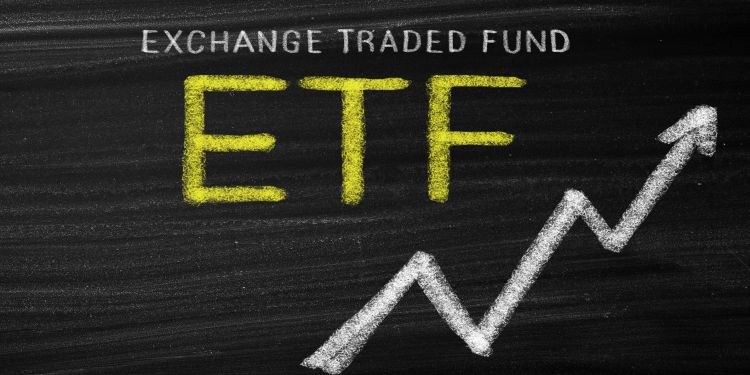Exchange traded funds pool the financial resources of several people and use it to purchase various tradable monetary assets such as shares, debt securities such as bonds and derivatives. Most ETFs are registered with the Securities and Exchange Board of India (SEBI). It is an appealing option for investors with limited expertise of the stock market.
An exchange traded fund or ETF is a fund that is listed and traded on the stock exchange. ETFs are similar to index mutual funds but they trade just like stocks. An ETF is available for purchase from the fund house during the New Fund Offer (NFO) period. Post the NFO, the units of the fund are listed on the stock exchange for purchase and sale.
The Features of Exchange Traded Funds
Below are some of the features of the Exchange Traded Funds:
- Exchange Traded Funds are a good investment option for the small investors. The arbitrageurs ensure that the ETF prices are kept close to the of the underlying securities.
- An ETF pays out dividend received from the underlying stocks on a quarterly basis. Thus, they can hold cash for various time frames throughout the quarter.
- Since the Exchange Traded Funds are managed stocks, they offer greater tax benefits than the usual mutual funds.
- The Exchange Traded Funds are designed to replicate the performance of the commodity or the underlying index. The investors always know exactly what they are buying.
- The ETF have a low annual fee as compared to traditional mutual fund. The people who generally invest in the ETFs can increase the cost of investing in the ETFs.
ETF Types
The most common types of ETF funds (India) are:
- Equity ETF – These represent companies investing in shares and other forms of equity of various organisations.
- Gold ETF – This is a commodity exchange-traded fund primarily involving physical gold assets. Purchasing shares of this company allows you to become the owner of gold on paper, without the burden of asset protection.
- Debt ETF – Enterprises trading in fixed return securities such as debentures and government bonds are often called Debt ETFs.
- Currency ETF – Currency ETF funds mainly profit due to the fluctuation of the exchange rates. They purchase the currency of different countries based on calculated predictions about the future performance of that currency. Currency ETFs follow not only the stock exchange trends but also the political and economic scenario of the respective countries.
- Commodity ETFs invest in commodities including crude oil or gold.
Management of ETFs
ETFs are launched by asset management companies just like other mutual fund schemes. An ETF is a passively managed fund and hence has a lower fund management fee as compared to an actively managed mutual fund scheme.
Process of Investing
Investments can be made by purchasing units of the desired ETF during the trading hours at market driven price of the ETF. Investors can give instructions to their broker to invest or can invest on their own using the online trading interface provided by the broker.
Investment Requirement
An investor must have a demat account with a depository participant as well as a trading account with a stock broker or sub-broker. One can opt to open a 3-in-1 account comprising a bank account, demat account and trading account which allows managing investments in an efficient manner at one place. The account can be opened by filling up a form and submission of KYC documents.
Advantages of Exchange Traded Funds?
Below are some of the advantage of the ETF:
- Unlike traditional stocks, the Exchange Traded Funds can be traded throughout the day. They provide an opportunity for speculative investors to bet on the direction of shorter term market movements.
- Exchange Traded Funds shine when it comes to saving money. They offer all the benefits of the index stock and cost a lot less.
- Exchange Traded Funds come in handy when investors want to create a diversified portfolio.
- Exchange Traded Funds are a favorite amongst the tax aware investors. The unique structure of Exchange Traded Funds allows the investors who are trading in large volumes to receive in-kind redemptions.
Limitations of ETF
ETFs have certain shortcomings which you should be aware of before investing in an ETF trading company.
1. Brokerage fees and Demat account
Since ETFs are traded like shares, there are several expenses which have to be incurred to purchase them. This is generally done by the fund managers, who charge a nominal commission fee for such transactions.
You can also opt to transact by yourself on the share market and not involve any fund managers in the process. A Demat account has to be opened in such a situation. Operating a Demat account requires basic knowledge of stock market transactions and its associated technique, which might be difficult for a novice.
2. The volatility of the stock market
ETF companies listed on a stock exchange are subject to price fluctuations as per market trends. They are not stable like government bonds. Earning a profit or incurring a loss depends heavily on the stock market conditions.
3. Diversification
Exchange traded funds have moderate diversity. As most ETFs are passively managed, they generally invest in best-performing companies listed on a particular stock exchange. ETF organisations often overlook small scale companies with huge potential.

